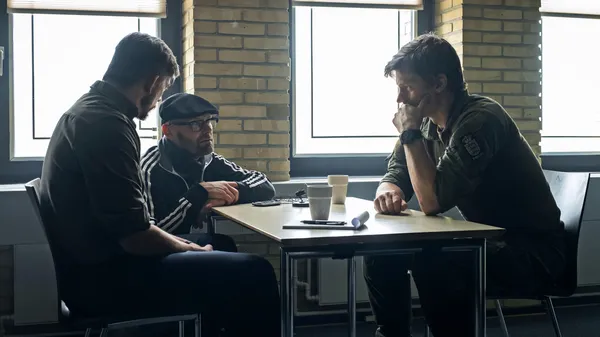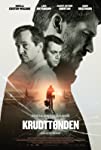Eye For Film >> Movies >> Powder Keg (2020) Film Review
Powder Keg
Reviewed by: Jennie Kermode

At three in the afternoon on Valentine’s Day, 2015, a shooting incident at the Krudttønden cultural centre in Copenhagen led to the death of one man and the wounding of three others. Later that day, the shooter killed another man. Coming just over a month after the fatal shootings at the offices of Charlie Hebdo magazine in Paris, these killings shocked Europe, with many assuming that they were part of an organised wave of attacks which would last for a long time. They turned out to be the work of just one man, and this film sets out to tell the story.
Originally made for a Danish audience, Powder Keg has a lot going for it, including an attention to detail and a nuanced approach to the core issues which is hard to find elsewhere, but it suffers somewhat in translation. Despite the international news coverage which the attacks received at the time, few people outside Denmark will now be aware of the details, and this story is constructed not so much as a mystery thriller – as it has been marketed – but as a reconstruction of, and reflection on, the events leading up to that day. Given this, non-Danish viewers may find themselves frustrated watching what appear to be several unrelated storylines which don’t connect until the very end. Attempts to link them thematically are only partially successful, and some of the most interesting characters (Adam Buschard is a stanbdout in his portrayal of Dan Uzan) don’t get much to do.

The film is being pitched to international audiences largely on the basis that it stars Nikolaj Coster-Waldau, whose popularity as Jamie in Game Of Thrones guarantees decent returns. Coster-Waldau is capable as always but this is an ensemble film so viewers should be aware that they might not see as much of him as they hoped to. He does, however, have the role which links the rest together, and it’s in the development of his character, SWAT officer Rico, that co-writer/director Ole Christian Madsen finds the key to addressing what he sees as the central issue: fear of change. The officer is not only on the brink of forced medical retirement, he’s also going through a bitter divorce, providing an opportunity to talk about fear of change and the way we all need to adapt in order to avoid losing our way in a rapidly changing society.
His counterpart, with equal screen time, is Albert Arthur Amiryan as Omar Abdel Hamid El-Hussain, the shooter. It’s Amiryan’s first screen role and he acquits himself well, showing us the frustration and confusion of a man just released from prison who has acquired a set of radical beliefs which repeatedly fail to fit the world as he actually observes it. It’s here that the film is at its best, getting beyond the usual arguments about justice and radical politics to show us a human being who is profoundly off-balance. Scenes in which he returns to the housing estate where he grew up and talks to old friends illustrate the gulf between Omar’s thinking and that of others subject to many of the same stressors.
There are some notable choices in the framing of the film. We barely see anything of the men who helped Omar to plan the attack, and in a debate around freedom of speech, French ambassador François Zimeray, an absolutist defender of the right to offend, is positioned firmly as an outlier in his opinions; as if to balance this, he is given a bit of extra drama in his final scene. The overall effect of this approach is to shift the balance of the film towards a more moderate position, arguably as a counter to the polarised arguments to be found in most discussions of the events elsewhere. For the most part, however, the film sticks closely to established facts.
Though it might disappoint some of those looking for a fast-paced thriller, and it’s certainly not interested in feeding political controversies, this is a thoughtful film which attempts to make sense of the details of what happened whilst keeping an eye on the bigger picture.
Reviewed on: 03 Sep 2021

















